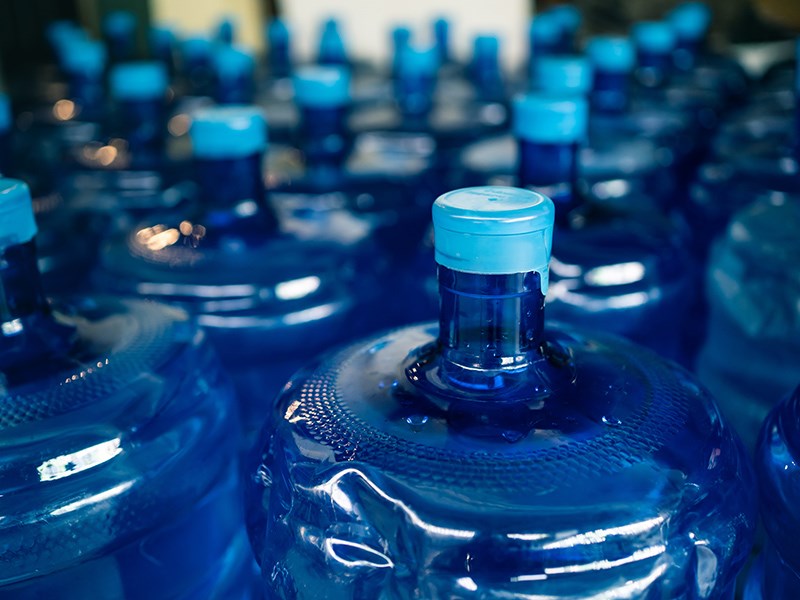City of Powell River Council is supportive of water bottling in the city as long as it is not from groundwater sources and it is regulated.
At the June 4 council meeting, senior planner Daniella Fergusson outlined a report she had written regarding bottling of water in the city. The initiative came from the April 2, 2019, committee of the whole meeting, where staff was directed to prepare a report regarding prohibition of all groundwater bottling for commercial sale and bulk export in Powell River, following a presentation from Bruce Gibbons of the Merville Water Guardians.
Fergusson stated that on March 3, 2020, staff presented a draft bylaw to the committee of the whole that recommended prohibiting the bottling of non-municipal water. Staff was directed to provide additional advice and regulatory options to address the following issues: distinguishing between bottled groundwater and surface water, plus exploring a permit option through business licensing.
Fergusson came back to council with three options in her staff report.
The first was a bottling prohibition of non-city water, which would prohibit bottling of water and other beverages where the source of the water is other than the municipal water supply supplied directly to the property on which the bottling is taking place.
The second was a bottling prohibition of groundwater only that would prohibit bottling of groundwater in all zones.
The third was a bottling prohibition of groundwater, plus regulation of water bottling. This option called for water bottling to be permitted, except for water from groundwater sources, with a business licence bylaw amendment to require a water bottling business to demonstrate the source water is not groundwater.
Councillor George Doubt said originally, the presentation from Gibbons was about protecting groundwater. He said since the presentation, he has heard discussion that water tables on Vancouver Island are being depleted and a lot of people rely on that groundwater for irrigating fields and drinking water. He said there was concern that groundwater would be extracted by corporations, bottled, and in some cases exported, and that would be to the detriment of local residents.
The request was that some kind of protection be provided by limiting the bottling of groundwater in Powell River.
“I find that reasonable and I like the idea of a bottled groundwater prohibition plus the regulation of water bottling, which would require a business licence, and staff could say, ‘show us your water licence’ to understand where that water was coming from,” said Doubt.
Councillor Jim Palm said he remembered the presentation from Gibbons and the concern about the aquifers, because it was a drinking water source for residents. He said the water situation on Vancouver Island is different from what the city is blessed with here in Powell River. He asked if someone had a water licence and was bringing water into Powell River by container ship and set up a bottling plant, if the suggestions before council would prohibit the bottlers from setting up and creating jobs.
Mayor Dave Formosa said if council approved the second or third option, the bottler would be okay.
Councillor CaroleAnn Leishman said one of Gibbons’ concerns was that people were extracting groundwater from aquifers, shipping it out of town and then bottling it in other jurisdictions. She said a resolution went to the Association of Vancouver Island and Coastal Communities and passed so municipalities do not allow corporations to come into their communities with groundwater from other communities and bottle it.
“I want to go after the option that is most protective of not only our groundwater but also other communities’ groundwater and surface water,” said Leishman. “I don’t want to encourage or support any corporations from making money off water when there is safe, clean drinking water in our community that is publicly owned and everyone has a right to it. I don’t want corporations to buy water.”
Councillor Rob Southcott said he didn’t support putting drinking water into plastic bottles. He also said the first option gives the city the greatest control over what is done here with water, whether it’s groundwater or surface water.
Formosa said he has been quite vocal about the fact that he agrees with the prohibition of bottling of groundwaters. However, he has been working with a group that has a water licence from Toba Inlet connected to a waterfall. Formosa said the company takes a barge, parks it under the waterfall and then loads water. The barge is taken to Vancouver where the water is bottled.
“The folks who have that water licence now are looking at coming to Powell River to do their bottling,” said Formosa. “I do not want to put a roadblock in front of that because I believe we can use the jobs and I don’t see this hurting anybody.
“I also said council would probably not be in favour of plastic bottles and they said they would use aluminum or some type of glass bottles. We are not there yet but I would hate to see this council prohibit such economic activity. I would like to choose option three.”
Leishman proposed a motion on the first option prohibiting the bottling of non-city water, which was seconded by Southcott, but voted down.
Council then carried a motion for the third option, that staff be directed to prepare an amendment bylaw to the city’s zoning bylaw that permits water bottling, except for water from groundwater sources, with a complementary amendment to the business licensing bylaw to require that a water bottling business demonstrate the source water is not groundwater.



